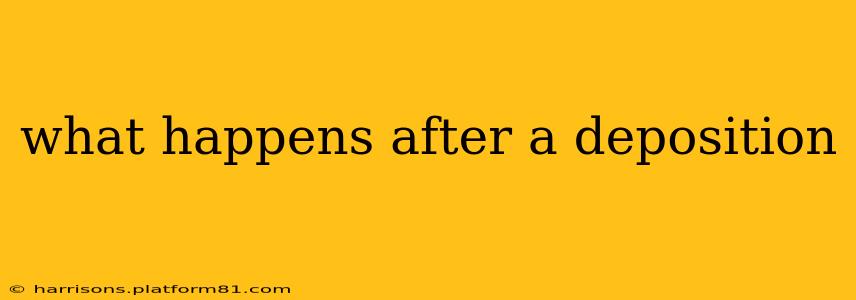Depositions are a critical stage in many legal proceedings, but what transpires afterward is often unclear. This guide will clarify the post-deposition process, addressing common questions and concerns.
What Happens to the Deposition Transcript?
After the deposition concludes, the court reporter prepares a transcript of the proceedings. This transcript is a verbatim record of everything said during the deposition, including objections. This transcript is then reviewed by the attorneys involved. The process of reviewing, editing, and certifying the transcript can take several weeks. Once finalized, the transcript becomes a vital piece of evidence that can be used during trial or in settlement negotiations.
Are There Any Post-Deposition Motions?
While not always necessary, certain post-deposition motions are possible. For instance, if an attorney believes the deposition testimony was improperly obtained or contained privileged information, they may file a motion to strike portions of the transcript or to compel additional testimony.
What Happens if Objections are Made During the Deposition?
Objections made during a deposition are recorded in the transcript but generally do not halt the questioning unless they involve privilege or other fundamental issues. The witness can still answer the question, even with objections lodged. The judge will ultimately decide the admissibility of the testimony at trial.
What if the Witness Doesn't Remember Something?
It's common for witnesses to have gaps in their memory. In such instances, the witness will state they don't recall, and the transcript will reflect this. Attorneys may later attempt to refresh the witness's recollection using documents or other evidence.
Can a Deposition Be Used in Court?
Yes, deposition transcripts can be used in court for several purposes:
- Impeachment: If a witness gives conflicting testimony at trial compared to their deposition, the deposition transcript can be used to challenge their credibility.
- Evidence: Portions of the deposition transcript can be introduced as evidence if they are relevant to the case.
- Discovery: The information gathered during the deposition helps attorneys prepare their case and assess the strengths and weaknesses of their opponent's case.
How are Depositions Used in Settlement Negotiations?
Deposition transcripts often play a crucial role in settlement negotiations. The information revealed during the deposition can give each side a clearer understanding of the opposing party's case and can significantly influence the willingness to settle. The strength or weakness of the testimony might greatly impact the settlement amount.
How Long Does it Take to Receive the Deposition Transcript?
The timeframe for receiving a finalized deposition transcript varies depending on several factors, including the length of the deposition, the court reporter's workload, and any requested corrections or modifications. Typically, you can expect the transcript to be available within a few weeks, but it can sometimes take longer.
What if I Made a Mistake During My Deposition?
If you believe you made a mistake during your deposition, it's crucial to discuss this immediately with your attorney. They can advise on the best course of action, which may involve filing a motion to correct the transcript or presenting clarifying evidence.
In conclusion, the period after a deposition is a crucial phase in the legal process. Understanding what happens next, from obtaining the transcript to its potential use in court and settlement negotiations, is vital for all parties involved. Always consult with legal counsel for guidance and advice specific to your circumstances.
